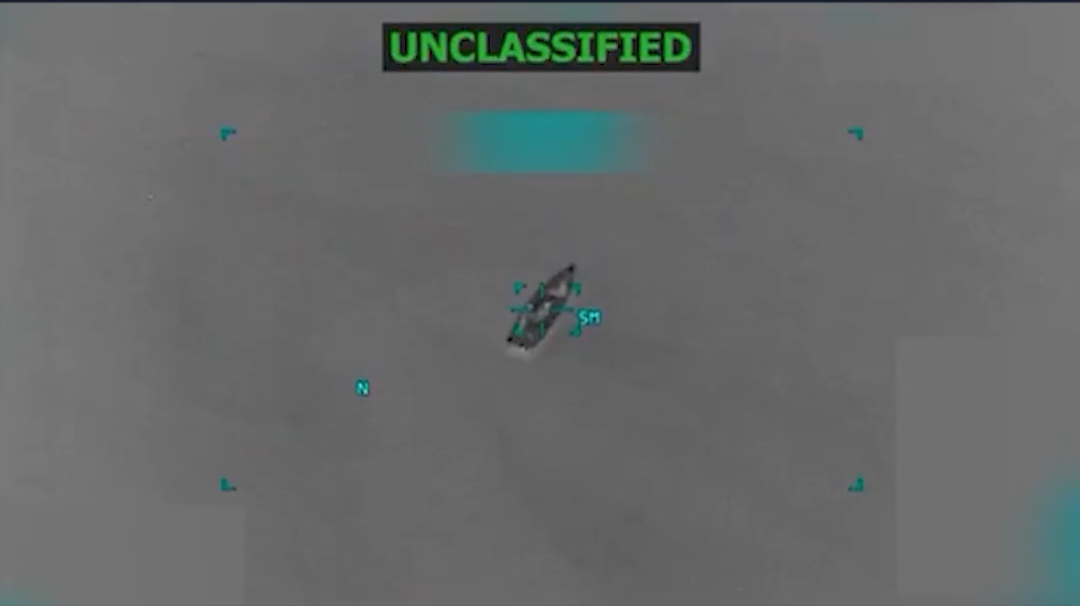WASHINGTON — U.S. forces struck two alleged drug-trafficking boats in the Pacific Ocean on Wednesday, eliciting international outcry as the Trump administration continues its campaign against alleged “narco-terrorists.”
Since early September, U.S. Special Operations forces have conducted nine confirmed strikes against alleged drug-trafficking boats in the Caribbean and Eastern Pacific Ocean, killing at least 37 people and prompting intense legal scrutiny.
Without providing evidence, the Trump administration has framed the strikes as necessary to prevent members of Venezuelan gang Tren de Aragua and other cartels from smuggling illicit drugs across U.S. borders.
Experts in international law, national security law and presidential power have largely deemed the strikes illegal, citing human rights law, U.N. treaties and congressional war powers.
“President Trump is the judge, the jury and the executioner,” said Notre Dame Law School Professor Mary Ellen O’Connell, who specializes in international law. “He’s just ordered summary execution of people about whom he knows almost nothing in a context in which they have the right to life.”
That uncertainty has been a significant sticking point with critics. The White House has not released any evidence to support its claim that the boats carried fentanyl bound for the U.S.
Critics of the strikes, including Sen. Jeanne Shaheen (D-N.H.), have raised concerns that the increased U.S. military buildup in the Caribbean could signal the administration’s intent to topple Venezuelan President Nicolás Maduro’s government.
Trump has stated publicly that he does not want Maduro in power, and acknowledged that he authorized the CIA to conduct covert operations in Venezuela, leaving many worried about potential regime change efforts.
The administration has attempted to provide a legal justification for the recent strikes.
In two September notifications to Congress, the White House said the attacks were acts of “self-defense” and alleged that the cartels’ actions amounted to an “armed attack” against the U.S.
According to international law experts, Article 51 of the U.N. Charter, which recognizes countries’ right to self-defense following an “armed attack,” has historically been interpreted only to extend to attacks by other countries. Though the U.N. extended this right to include attacks from nonstate groups following 9/11, this recognition remains controversial.
“The real question is whether or not there’s an armed attack against the United States by international narcotics activities, and that’s a highly unlikely proposition,” said Antonio F. Perez, a law professor at the Catholic University of America’s Columbus School of Law.
Following one strike, Colombian President Gustavo Petro accused the U.S. of killing an innocent Colombian fisherman. O’Connell said that if this allegation is true, the strikes run afoul of the internationally-recognized right to life.
She added that the strikes may also violate the U.N. Convention on the Law of the Sea, which establishes a legal framework for international waters. The U.S. has not ratified the convention, but military advisors have for decades stated that the U.S. would “act in a manner consistent with its provisions.”
“We have a very narrow set of situations where military force can be used,” O’Connell said. “They’re not present in the Caribbean, they’re not present in Venezuela, they’re not present in Colombia.”
The White House is also facing discontent among lawmakers, who remain largely in the dark about many details of the strikes.
“We’re shut down on any concrete information on the basis of the intelligence,” Sen. Peter Welch (D-Vt.) told Medill News Service.
Many Senate Democrats, along with Sens. Rand Paul (R-Ky.) and Lisa Murkowski (R-Alaska), have balked at the administration’s apparent rejection of congressional authority.
“I think there is an obligation under the Constitution to consult with Congress,” Sen. Richard Blumenthal (D-Conn.) told Medill News Service.
Last month, Sens. Tim Kaine (D-Va.) and Adam Schiff (D-Calif.) introduced a joint War Powers Resolution to prevent Trump from taking military action against Venezuela without congressional authorization. Republicans ultimately tanked the bill.
“I support the administration,” Senate Majority Whip John Barrasso (R-Wyo.) told Medill News Service when asked about the boat strikes.
“I’m concerned about the escalation we’ve seen over the years with drugs poisoning our communities,” he added.
A group of U.N. experts condemned the strikes, and Russian and Chinese leaders have publicly expressed support for Venezuela. Maduro, meanwhile, confirmed that the Venezuelan military is preparing for a U.S. invasion and threatened an “armed fight.”
As the strikes challenge preexisting norms of domestic and international law, experts warn they could go largely unchecked, but could have lasting consequences on future military interventions.
“If this is correct, if Donald Trump has this authority, it would mean he could order the killing of anyone anywhere,” said Chris Edelson, an assistant government professor at American University. “If he believes that there are drug traffickers anywhere, why would it be limited to the Caribbean?”


